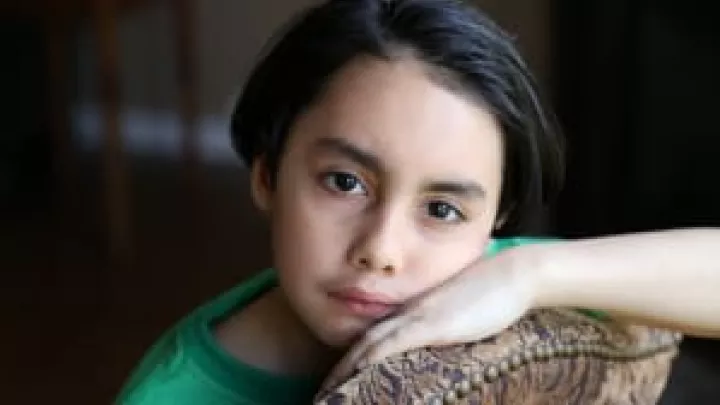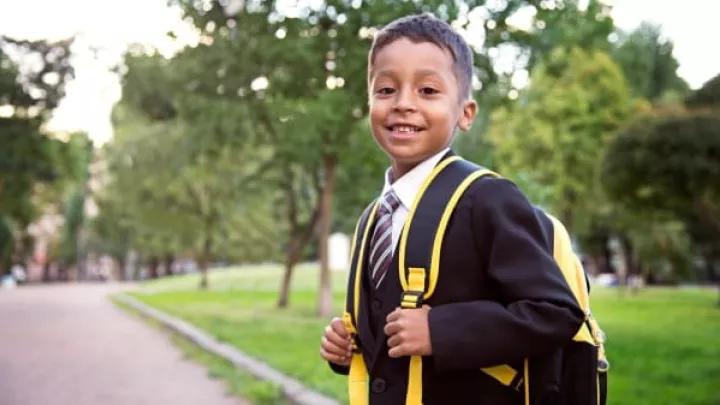
ADHD and Your Child: A Q&A With One of Our Experts

A recent study by the Centers for Disease Control and Prevention, featured in the New York Times and other media outlets, showed an 11 percent rise in diagnosis of attention deficit hyperactivity disorder (ADHD) in school-age kids. As a parent or guardian, you may wonder, “How do I know if my child as ADHD?” or “How do I help my child who does have ADHD?” We spoke with Stephanie Marcy, PhD, Licensed Psychologist at Children’s Hospital Los Angeles to answer some of the questions worried parents have.
What are the overall symptoms of ADHD?
There are three different subtypes of ADHD:
- Inattentive
- Hyperactive/Impulsive
- Combined.
Your child must display a minimum number of main symptoms within one of the two main subtypes (or both to be diagnosed for combined ADHD) which will be present in two settings like school and home. The symptoms must start before the age of seven to meet full diagnostic criteria. The two types of symptoms most present in kids are:
- Inattentive, which include careless mistakes, difficulty keeping attention, seeming not to listen, poor follow-through, difficulty with organization, avoidance of tasks that require constant effort, losing things often, being easily distracted and forgetful.
- Hyperactive/Impulsive, which include your child being fidgety or squirmy, difficulty remaining seated, extreme movement or restlessness, difficulty enjoying play activities quietly, “driven by a motor,” excessive talking, blurting out answers, difficulty waiting for their turn, frequent interrupting or intruding on others.
Many children and adolescents will exhibit difficulties in social skills and peer relationships and may have trouble making or keeping friends. The symptom presentation may look different in girls versus boys, as well as between different age groups and different cultures. Gender, age and cultural differences need to be taken into account when evaluating for ADHD.
If parents believe their child may have ADHD, when is a good time to contact the child’s physician or an ADHD expert?
Speaking with the child’s primary pediatrician is a good first step and should take place as soon as the parent, school and/or child begins to suspect that there is a concern. The outcomes of untreated ADHD, or possible other diagnoses that may be presenting as ADHD-like symptoms, can be quite negative if intervention is not sought early on. The pediatricians at Children’s Hospital Los Angeles are very confident in evaluating for ADHD and follow the guidelines set forth by the American Academy of Pediatrics (AAP). After you speak with your child’s pediatrician, a plan for a more formal evaluation for ADHD and co-occurring disorders can be discussed and developed.
Are there different treatment interventions that are recommended for different age groups with an ADHD diagnosis?
Absolutely. The standard of care recommendations by the AAP vary depending on the child’s age, as research has shown that children of different ages respond more effectively to different interventions. Preschool (Kids aged 4-5) It is recommended that after the child’s diagnosis, the doctor should hold off on prescribing medications. Instead, refer the family for therapeutic intervention, which often involves training the parent(s) to give behavioral interventions at home, and the teacher in the school setting. If these interventions do not result in major improvement in the child’s functioning, then consideration of medication may be given at that point. Middle school (Kids aged 6-11) It is more strongly recommended that medication be considered as an appropriate initial intervention, along with referral to behavioral therapy parenting intervention. Ideally, both interventions would be given. As with any age, school interventions should be implemented as well. Adolescents (Kids aged 12-18) The recommendations are more focused on prescriptions of ADHD medications as a front line intervention. Behavior therapy would ideally be considered as treatment too. Risk for abuse of ADHD medications, especially stimulant ones, needs to evaluated for this age group and given a lot of thought in the process of deciding whether medication is appropriate or safe. Again, school interventions should be implemented.
Is treatment for ADHD a life long process or do kids outgrow the condition?
ADHD is a life long condition because it is neurological. Many individuals, with appropriate or early intervention, may end up with reduced symptoms as they get older and are better at using the behavioral tools that they have been given through therapeutic and behavioral interventions. Some individuals may choose to stop medications and will rely on the “tricks” they have learned to minimize the level of impairment their ADHD has on themselves. Some examples of these “tricks” are leaving reminder emails or voicemails, using a calendar or scheduling program to keep track of important deadlines, scheduling frequent breaks, etc.
What ADHD management tips do you have for parents of kids with ADHD?
Consistency and organization, like doing daily checklists with your child, is very important. Here are some other tips to help manage your child’s ADHD at home.
- Insist on eye contact when speaking to your child to ensure that he is paying attention and aware that you are speaking to him.
- Create checklists and "to do" lists daily before starting homework, and check off things as they’re completed. Take step-by-step approaches to work or tasks, breaking them down into smaller, manageable parts.
- Provide written directions with oral instructions whenever possible. Include visual organizational aids as part of lessons and homework assignments, and even chores at home. For example, write chores or a daily routine on a white board, have the child erase tasks once done.
- Use tools like time organizers, calendars, computers or alarms, particularly when multiple assignments or tasks need to be completed.
- Prepare visual schedules and review them frequently, including time for breaks and transitions. Maintain a routine as much as possible so that some behaviors become overlearned and habitual.
- Communicate regularly with your child’s teacher.
- Designate a specific, well-lit quiet space in which to complete work and minimize distractions (no cell phone, iPod, TV, etc.).
- Divide subjects into separate, color-coded folders. Encourage your child to put assignments into appropriate folders daily. Have a separate folder for “work to turn in” that completed assignments go in as they are finished, and ask the teacher to prompt the child to turn in completed work at the end of day.
- Have a “home copy” and “school copy” of textbooks.
- Complete daily backpack checks to look for missing or forgotten work, notes from teachers, handouts from school, etc.
- Remind your child to review work for errors.
- Consider enrolling your child in martial arts or yoga. These activities have been shown to be helpful interventions for individuals with ADHD.
- Remember to praise your child for effort. Kids with ADHD often have low self-esteem as they are constantly being reprimanded. Finding opportunities to praise them is invaluable, and will help them feel more confident to continue to sustain their effort and eventually achieve mastery.


